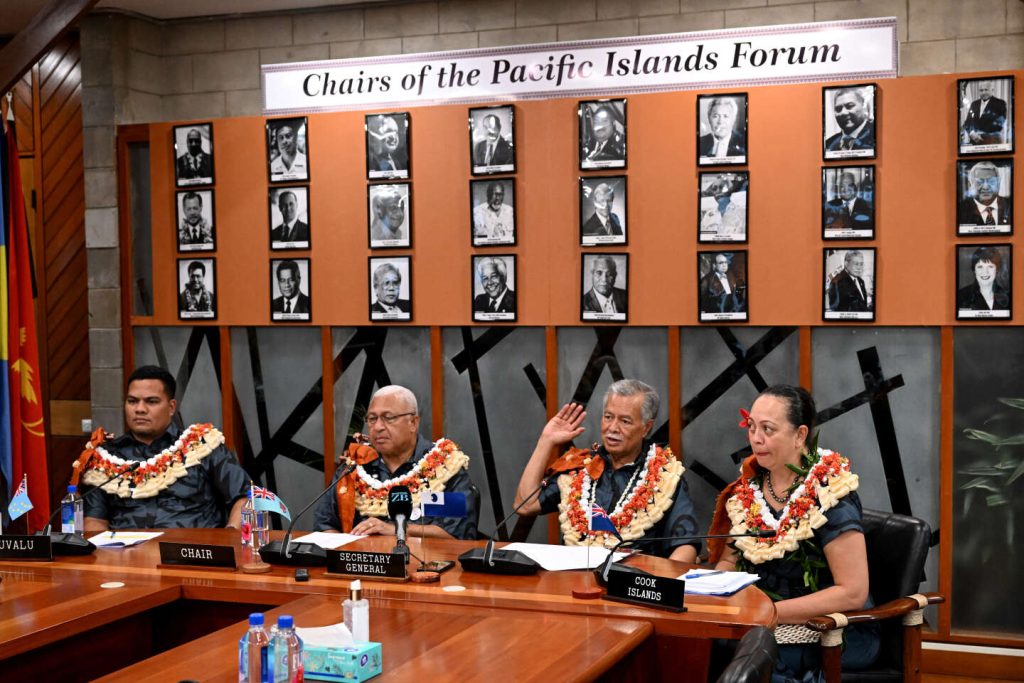The recent unrest in New Caledonia has drawn attention from neighboring countries in the South Pacific, who are closely monitoring the situation. The Group of Melanesian Spearhead (GFLM), which includes Papua New Guinea, Vanuatu, Fiji, the Solomon Islands, and the Kanak and Socialist National Liberation Front (FLNKS), has criticized the French government for not listening to the concerns of the Kanak people. The GFLM has called for a high-level dialogue and mediation mission to establish lasting peace in the region. The clashes in New Caledonia have resulted in five deaths, highlighting the need for a peaceful resolution to the conflict.
The GFLM has been supportive of the independence movement in New Caledonia, particularly during the three referendums on self-determination held in 2018, 2020, and 2021. The results of the third referendum in December 2021, which saw a landslide victory for the “no” camp, were rejected by the independence supporters due to concerns about the fairness of the electoral process. The decision to proceed with the referendum despite these objections has been seen as a lack of respect for Kanak traditions and customs, which place a strong emphasis on honoring ancestral practices.
The refusal of the French authorities to postpone the referendum has raised eyebrows in the countries of the South Pacific, where respect for cultural traditions is highly valued. The Forum of Pacific Islands (FIP), an organization that includes all independent countries in Oceania, as well as New Caledonia and French Polynesia, has expressed concern over the handling of the referendum. The Kanak people’s inability to fully participate in the electoral process due to the Covid-19 pandemic and traditional mourning customs has been seen as a disregard for their cultural values.
The unrest in New Caledonia has underscored the complex relationship between the territory and France, as well as the ongoing debate over independence. The fragile peace in the region, which was established following the conflict of the 1980s, is being tested by the recent violence. The international community, particularly the countries of the South Pacific, is closely monitoring the situation and urging for a peaceful resolution to the crisis. The need for dialogue and mediation to address the underlying issues and work towards a lasting peace in New Caledonia has become increasingly urgent.
In conclusion, the recent events in New Caledonia have highlighted the challenges facing the territory and the need for a peaceful resolution to the conflict. The involvement of regional organizations such as the GFLM and FIP, as well as the support of neighboring countries in the South Pacific, is crucial in finding a way forward. The call for dialogue and mediation to address the grievances of the Kanak people and work towards a peaceful solution reflects the desire for a lasting peace in the region. The international community must continue to support efforts to resolve the crisis in New Caledonia and ensure a peaceful future for all communities living in the territory.


